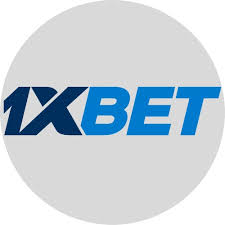esports betting A Practical Guide to Markets, Strategy and Responsible Play

Esports betting has evolved from a niche pastime into a global industry, offering a wide range of markets across titles such as CS:GO, League of Legends, Dota 2, Valorant and more. For those exploring mobile convenience and broad market access, the esports betting 1xbet app exemplifies how bookmakers bring live odds, promotions and multiple betting formats to the palm of your hand. This introduction will walk you through the essentials of understanding esports odds, crafting a strategy, managing risk, and staying on the right side of regulation and responsible gambling.
Understanding the variety of esports markets is the first step. Traditional match-winner bets remain the most common: backing the team or player you expect to win a match. Beyond that, there are map, round and map handicap markets in tactical shooters; first blood, first tower, and kill totals in MOBAs; and proposition bets that target individual player performance. Futures and outright tournaments offer higher variance but attractive payouts, while accumulator bets combine several selections into one high-risk ticket. Knowing how different titles structure their competitive format helps you choose the most suitable markets.
Odds types—decimal, fractional and American—are standard across esports betting platforms. Decimal odds are often the easiest to interpret: multiplying your stake by the decimal gives your potential return. Implied probability is another useful concept: convert odds to implied probability to compare a bookmaker’s pricing with your own assessment of an event’s chance of happening. When your estimated probability exceeds the implied probability, you may have found an edge.
Developing a successful esports betting strategy blends game knowledge with disciplined bankroll management. Start by specializing in one or two titles where you can build deep tactical understanding of meta shifts, team form, patch impact and player substitutions. Follow match VODs and player statistics to spot trends that markets may not fully reflect. Lineups change frequently in esports, and a single roster substitution can dramatically alter a team’s playstyle and odds.

Bankroll management is essential. Decide on a dedicated betting bankroll and stake a fixed percentage per wager—many experienced bettors recommend between 1% and 5% depending on confidence and variance in the selected market. Keep detailed records of every bet: date, market, odds, stake, result and a short note about the reasoning behind the bet. Over time, this log reveals strengths and weaknesses in your approach and helps you refine your model for valuing odds.
Value betting and line shopping are practical ways to increase long-term profitability. Value betting means wagering only when you believe the offered odds underestimate the true probability. To do this consistently, build a simple model or rating system for teams and players: recent performance, map win rates, head-to-head records, and contextual factors such as travel or server location. Comparing odds across multiple bookmakers uncovers discrepancies where one operator offers a better price for the same selection—staking on the best available odds increases expected value.
Live or in-play betting is particularly popular in esports due to the fast pace and frequent momentum swings. Live markets require quick decision-making and an understanding of game states. For example, in a shooter, a small economic advantage or player elimination might dramatically change round equity; in a MOBA, a successful early objective can shift win probability even if overall kill counts are close. Successful in-play bettors watch the match feed, not just the scoreboard, and focus on measurable shifts rather than gut reactions.
Risk management extends beyond stake sizing. Use cash-out options judiciously: they can lock in profits or reduce losses, but cash-out values incorporate the bookmaker’s margin and may not represent optimal decisions versus letting the market play out. Avoid chasing losses with unpredictable increases in stake size, and set daily, weekly and monthly limits to control volatility. Many platforms also allow deposit and loss limits—use these features proactively if you find losing streaks affecting your judgment.
Choosing a reputable bookmaker is critical. Look for operators offering clear rules for esports markets, competitive odds, reliable streaming or match trackers, and transparent cash-out and withdrawal policies. Licensing and regulation vary globally, so prioritize bookmakers regulated within respected jurisdictions. A good operator will publish terms for player substitutions, match cancellations and force majeure events specific to esports. Read these carefully before placing significant stakes, especially on futures or tournament markets.

Promotions and bonuses can be beneficial but examine wagering requirements and markets where they apply. Free bets, odds boosts and accumulator insurance are common promotions, but their actual value depends on the terms. Some bonuses exclude certain esports markets or limit the maximum stake. Use promotions to test markets or add low-cost speculative bets, but avoid using them as justification for poor staking decisions.
Responsible gambling practices are non-negotiable. Esports audiences include many young bettors; ensure you meet age and jurisdictional requirements and encourage safe play among peers. Set realistic expectations: even professional bettors accept that variance is part of the game. If betting stops being enjoyable or begins to impact financial or personal well-being, seek support from responsible gaming resources and consider self-exclusion tools offered by sportsbooks.
Data analytics and community insight are increasingly valuable. Follow independent analysts, subreddits, Discord servers and Twitter feeds focused on competitive scenes to catch breaking news and nuanced commentary. Combine qualitative insights with quantitative metrics: player impact ratings, side-specific win rates, and map pool statistics are useful inputs for a simple predictive model. Be wary of hype and confirmation bias; just because a popular streamer endorses a pick does not make it profitable.
Esports betting continues to mature, with greater integrity measures, better statistical resources and diversified betting products emerging every season. Innovations such as micro-markets (betting on individual rounds or exchanges), cash-out marketplaces and improved live streaming integration make the experience richer—but also demand sharper discipline from bettors. Approach the space with curiosity, build a methodical approach, and prioritize learning over quick wins.
In summary, esports betting rewards homework and discipline. Specialize in titles you understand, manage your bankroll with conservative stakes, shop for the best odds, and use live markets only when you have a clear informational advantage. Prioritize licensed operators and transparent rules, take advantage of data and community resources, and always practice responsible gambling. With steady improvement and a measured mindset, betting on competitive gaming can be an engaging way to deepen your appreciation of esports while managing risk intelligently.
